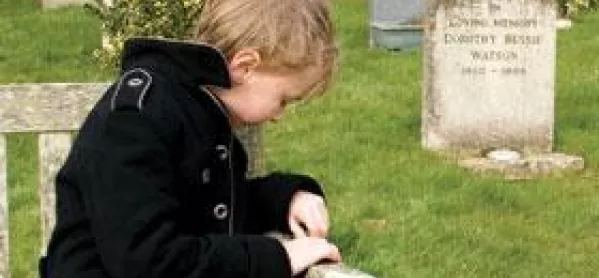`These kids are desperate. Please don’t exclude them’

Better bereavement services and fewer school exclusions could significantly cut the number of students ending up behind bars, a leading Scottish prisons chief has suggested.
Sue Brookes, governor of Scotland’s only dedicated young offender institution (YOI), urged teachers and other education professionals to do more to support young people in crisis and prevent them from falling into crime.
In a speech at the Scottish Learning Festival last week Ms Brookes, the head of Polmont YOI near Falkirk, quoted statistics suggesting that the vast majority of young offenders at the institution had lost loved ones and been barred from classes.
“Please don’t exclude them from school if you can possibly not,” she said. “The figures in Polmont are absolutely stark. About 90 per cent of young offenders have had a bereavement.and about the same number have been excluded from school in the past.
“When we talk to them we say, `Does nobody ask you [about the bereavement] at school?’ It’s not happening.”
“We know it’s hard and they won’t want to speak to you, but please stick with it. Please keep going back and asking them again. These kids are desperate. Please look at services for bereavement in schools; from what I’m seeing at the moment they are not meeting the need.”
The governor’s comments come as the British Association for Counselling and Psychotherapy (BACP) has recommended that the Scottish government should fund access to therapy for all secondary pupils. The group made its call in written evidence to the Education and Culture Committee inquiry on the Children and Young People (Scotland) Act.
Karen Cromarty, BACP senior lead adviser on children and young people, said studies in Scotland had shown that counselling could “directly help with a range of issues such as bullying, bereavement and eating disorders”.
The group also noted that in 2005 the Scottish government had called for counselling for all young people, and urged ministers to follow the lead of the Welsh government, which introduced a legal requirement for all secondary students to have access to school-based counselling.
A recent study from the University of Strathclyde, based on interviews with more than 30 of the 500 young offenders at Polmont, found that 91 per cent had suffered a bereavement among their family or friends. It was not uncommon for young people to have lost several close relations or acquaintances, with one teenager stating that 18 people in his life had died. Justice charity Apex Scotland works in partnership with eight schools across Scotland to help to reduce the number of troubled pupils being banned from class and ending up behind bars. At Dunfermline High School in Fife, the Apex inclusion unit has been credited with dramatically cutting the exclusion rate by enabling vulnerable young people to engage in school life through a mixture of group and one-to-one sessions and a drop-in service, tackling issues from anger management to body image. There is no specific session on bereavement but it is among the subjects that are addressed. Highlighting the impact of that support, the school outlined the case of a teenager whose mother committed suicide. He asked for two Apex unit staff to come to her funeral with him, because they were the only people he trusted to help him through the ordeal. Apex also works in two other Fife schools, plus one in Moray and four in Dundee. A Scottish government spokesperson said: “The Additional Support for Learning Act places education authorities under duties to identify, provide for and review the additional support needs of their pupils, which includes pupils affected by bereavement. “Our Getting It Right For Every Child approach would also provide support to a bereaved child or young person and their family if appropriate, helping them access support, including outside of the school context.”
Keep reading for just £1 per month
You've reached your limit of free articles this month. Subscribe for £1 per month for three months and get:
- Unlimited access to all Tes magazine content
- Exclusive subscriber-only stories
- Award-winning email newsletters


